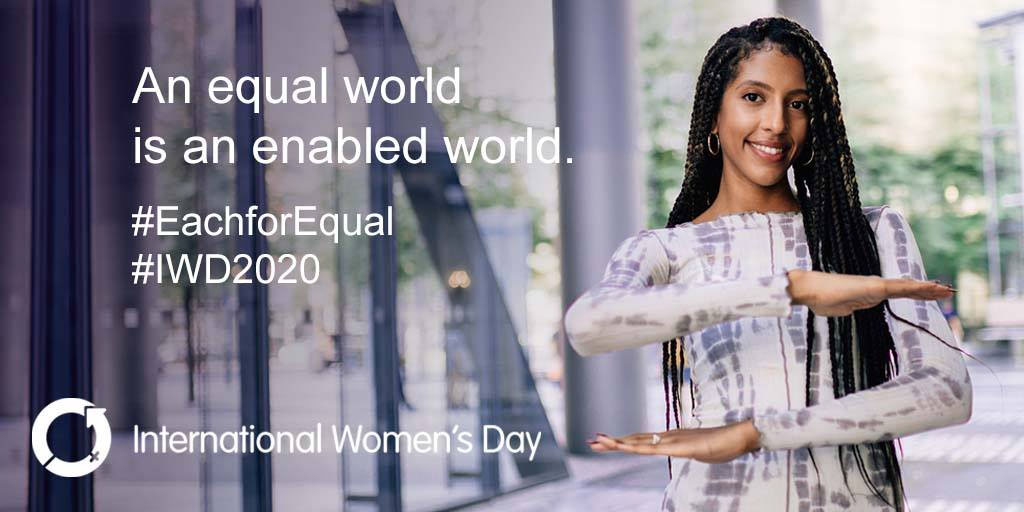The overarching message for this year’s International Women’s Day (IWD), which takes place on March 8, is “an equal world is an enabled world”, and the accompanying hashtag is #EachforEqual. This ambition certainly chimes with us at GoodDollar, where we are on a mission to reduce global wealth inequality – for both sexes.
IWD has always been a key date in the calendar for women’s rights, and can be traced back to 1909, when it was merely National Women’s Day, and held in New York City by the Socialist Party of America.
Much has improved for women around the globe in the 111 years since that inaugural event – women’s suffrage, the invention of the contraceptive pill, abortion laws, maternity rights, greater c-suite representation, the #MeToo movement, and equal pay. But there is still a long way to go before we achieve parity.
For the 2020 edition of IWD, we are encouraged to “celebrate women’s achievement … raise awareness against bias … [and] take action for equality”. At GoodDollar, we are laser-focused on the last point and want to push universal basic income (UBI) to be front and center of this critical conversation. Because, this IWD, we want to show who inequality hurts the most: women.
Everything you need to know about UBI in 11 minutes
We want to take this opportunity to look at the all-too-often overlooked but essential – and unpaid – work of women at home and in the community. Much of the work women do to contribute to the wealth of economies and societies isn’t accounted for in gross domestic product (GDP).
14 BTC & 30,000 Free Spins for every player, only in mBitcasino’s Crypto Spring Journey! Play Now!
GDP is the go-to monetary measure of a country’s development and progress and is used to compare living standards and between nations as well as economies on the international market. Some, including Philipp Lepenies, believe that GDP is the “most powerful metric in world history”.
GDP: SEXIST?
However, at GoodDollar, we tend to be inspired by the economists and cultural historians that challenge that “production” is the correct and all-encompassing metric to equate with economic health. Lorenzo Fioramonti, a professor of political economy at the University of Pretoria, argues: “The GDP is sexist because it adopts a framework of value creation and productivity that is traditionally anchored on individualistic, male-dominated activities.”
The author of The World After GDP continues: “It relegates all activities that have to do with care, nurturing, and community support – [which are] traditionally performed by women – to the margins of economic value creation.”
And, as Riane Eisler – who promotes the idea of Social Wealth Economic Indicators (SWEIs) as an alternative to GDP that provides a more holistic view of economic health – points out: “Studies show that if caregiving work were included, it would constitute between 30 percent and 50 percent of the reported GDP.”
Eisler continues: “One effect of GDP is that it justifies government policies that allocate little or no funding to support the essential work of caregiving. This is a major factor in the disproportionate poverty of women worldwide, as it is women who still primarily perform this work for free in households, with no retirement or pensions.” Ultimately, the unpaid work in the home powers and enables the productive economy, through raising our workforce (child-rearing) and caring for the elderly and incapacitated, which otherwise would keep more people out of the formal workforce.
One new way to challenge this status quo would be through a form of universal basic income that gives women – along with men – the necessary resources to get along, whether their work occurs in the home or as part of the “productive” economy that contributes to the GDP figure. Unconditional income in the form of UBI could ease the burden for any individual, regardless of gender, who devotes much of their productive work towards child-rearing or care for others.
The essential UBI reading list
And yet, financial inequality still disproportionately falls on women. The extent of which was laid bare in January, on the eve of the World Economic Forum (WEF) Annual Summit, when Oxfam reported that the 22 richest billionaires in the world – all men, incidentally – have as much wealth as all 325 million women in Africa. (Read what we wrote about that, and more shocking findings, here.)
The charity’s Time to Care study highlights how inequality continues to be at crisis levels with wealth valued overwork and the contribution of women under-rewarded. It suggests, convincingly, the global economy fails to reward those who carry out care work adequately – a lose-lose situation that widens the gap between rich and poor.
Extreme inequality is trapping millions of people in poverty around the world. Half the global population lives on less than $5.50 (£4.30) a day, and women, in particular, get a raw deal, according to Oxfam. Women and girls are putting in 12.5 billion hours of unpaid care work every day – including looking after the young and the elderly – which amounts to a contribution to the global economy of at least $10.8 trillion (£8.44tr) a year. That figure is more than three times the size of the worldwide technology industry.

